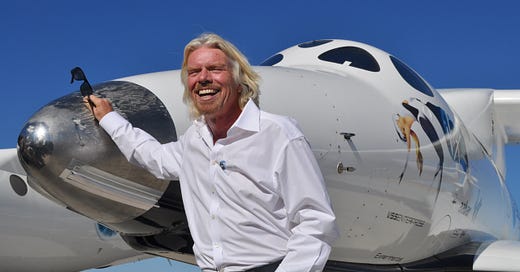Five of Richard Branson’s Most Inspiring Moments
Entrepreneurial Triumphs of a Rebel: Celebrating Richard Branson's Unconventional Journey
You may have heard of Virgin Atlantic, Virgin Mobile, or Virgin Galactic, but how much do you know about the mastermind behind all the Virgin companies—a man whose entrepreneurial spirit earned him the nickname Dr. Yes?
Richard Branson first went into business at the age of fifteen when he started the magazine Student, despite the fact that he was dyslex…
Keep reading with a 7-day free trial
Subscribe to The Objective Standard to keep reading this post and get 7 days of free access to the full post archives.





